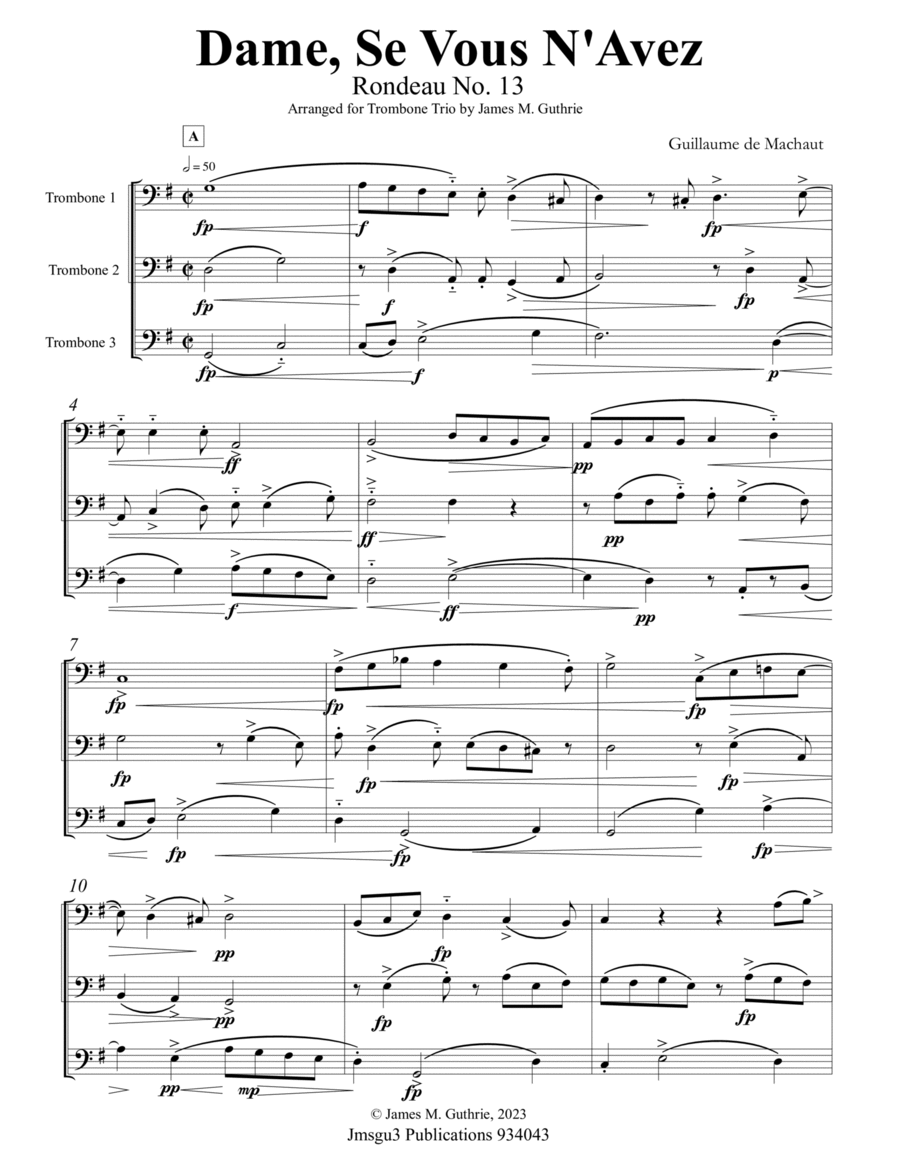Trombone - Level 2 - Digital Download SKU: A0.1349294 Composed by Guillaume de Machaut. Arranged by James M. Guthrie. Chamber,Contest,Early Music,Festival,Historic,Medieval. 6 pages. Jmsgu3 #934043. Published by jmsgu3 (A0.1349294). Guillaume de Machaut's Rondeau No. 13, Dame, Se Vous N'Avez, is a significant work that forms part of his extensive and influential musical output. Machaut, a pinnacle genius of Western music in the Middle Ages, is renowned for his mastery of polyphony and ability to unite melodic and rhythmic elements in his compositions. The rondeau is one of three thirteen-line rondeau poems that Machaut set to music, showcasing his skill in shaping melodic nuances and conceiving forms on a larger scale. The piece is part of Machaut's French songs, which dominated the fourteenth century in terms of quality and volume, further emphasizing its importance in his repertoire. Machaut's work, including Dame, Se Vous N'avez, has been the subject of scholarly analysis and musical appreciation, underscoring its historical and musical significance.Guillaume de Machaut's Rondeau No. 13 lyrics, Dame, Se Vous N'Avez, express genuine love and devotion. The speaker professes love without deception and invites the lady to test the sincerity of his affection, emphasizing his unwavering commitment to her. The lyrics convey a sense of loyalty and constancy in love, reflecting the themes of courtly love and chivalry prevalent in medieval poetry and music. The poem's emotional depth and romantic expression contribute to its significance as a representative example of medieval lyrical tradition and Machaut's poetic and musical prowess.The musical structure of Guillaume de Machaut's Rondeau No. 13, Dame, Se Vous N'Avez, follows the typical form of a two-part composition, as is common in the musical rondeau. The rondeau is a form of medieval and Renaissance French poetry and a corresponding musical chanson form, typically structured around a fixed pattern of repetition of verse with a refrain. The case of Dame, Se Vous N'Avez is one of three thirteen-line rondeau poems that Machaut set to music, and this form inevitably weights the first part over the second, which is significant for the parodic relationship between the two. The musical setting of the rondeau involves a specific pattern of repetition and refrain, contributing to its characteristic structure within the genre of medieval and Renaissance French music.
